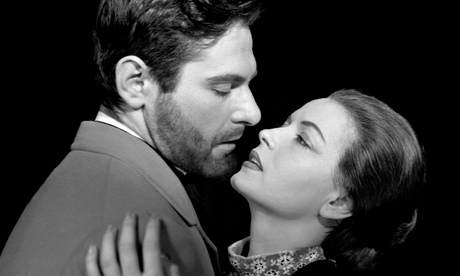
One wonders why anybody wanted to revive Zola's Thérèse Raquin, now presented in Mme Marcelle Maurette's stage version as The Lovers (Winter Garden, Edinburgh). In the vein of animal passion, with two sensualists plotting to rid themselves of an unwanted husband, it was superseded long ago by The Postman Always Rings Twice, and nowadays we expect more subtlety than Zola provides when it comes to the workings of guilt. "Soul is entirely lacking, I am happy to say," he wrote of the novel, and how smugly he piled on the putrefaction.
When Thérèse and Laurent have dumped the weakling Camille into the Seine not only does Camille's mother have a paralytic stroke, not only does Laurent take to tippling and dragging street-walkers into the little draper's shop, but even the cat must suffer. "Someone," says Thérèse bitterly, "has bashed in her ribs." Zola thought of himself as "a surgeon in his operating theatre", but to modern eyes, the operation looks dreadfully primitive: one sees the surgeon sharpening his cleaver on a grindstone. The conclusion, with the lovers swigging poison from a dark-green bottle, is pure grand opera.
Whether Mr Sam Wanamaker, who directs the piece and himself plays Laurent, has taken it seriously it is difficult to say. He has engaged M Georges Wakhévitch to design the shop and the glass-roofed arcade outside it, with results which abound in atmospheric stuffiness. But here realism ends. Mr Wanamaker, Miss Eva Bartok and Miss Helen Haye, in the leading roles, present three characters who could never have been on speaking terms in any conceivable kind of theatre or any conceivable kind of life. Miss Haye's fragile graciousness scarcely dominates the stage as Mme Raquin should but in any case she belongs in a different world from that of Mr Wanamaker, with his nasal expostulations and enormous, anguished shrugs. He, in his turn, makes an odd partner for Miss Bartok, who is wide-eyed, greatly blighted, and intensely Middle European.
"Her inner life," according to Zola, "was one of burning, uncontrollable desire." Miss Bartok gets this across with a vengeance, and in the quarrel scenes her plaintive howling drowns even Mr Wanamaker's snarls. The point is that the three stars seem to be acting in different capitals: London, New York and, arguably, Prague. A director of the new school, in short, has twisted the arm of an implausible old melodrama, leaving it twice as implausible as he found it, and twice as melodramatic.
Next week: Tynan on John Bird and John Fortune

